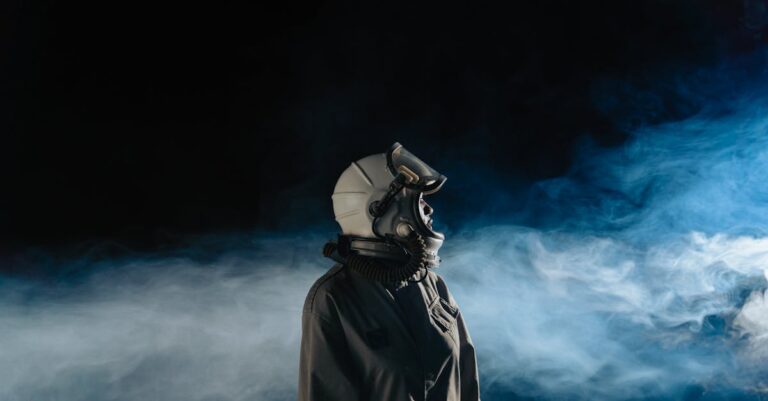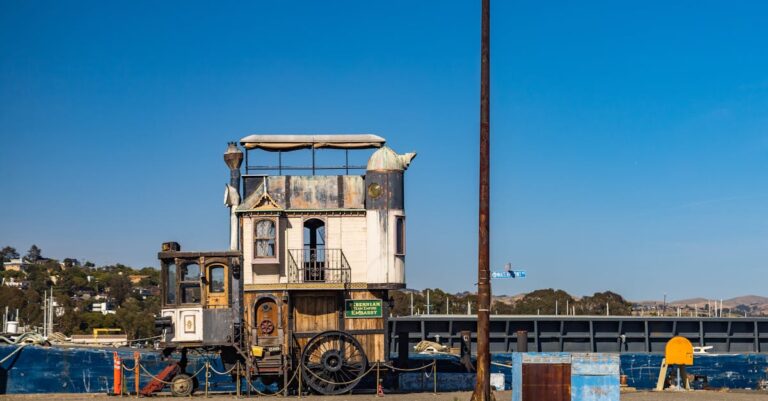
The air reeked of burnt oak and iron. Clara knelt in the dirt, her fingers digging into the soil as the distant boom of cannon fire rattled the windows of the farmhouse. The sky above Richmond had turned the color of bruised flesh, streaked with ash from the burning fields. She didn’t look up when the door creaked open behind her.
“They’re coming,” Thomas said. His voice was a rasp, raw from days of hiding in the cellar. He leaned against the frame, his left arm in a makeshift sling, blood seeping through the cloth. Clara didn’t answer. She couldn’t. The weight of the shovel in her hands felt heavier than the truth she’d been carrying for weeks.
The militia had taken the town three days prior. Men were hanged from telephone poles, their bodies swaying like broken puppets. Women were forced to dig graves for the dead, their hands blistered from the heat of the sun. Clara had watched her brother vanish into the smoke of a bonfire, his screams swallowed by the crackle of flames. She’d buried him in the woods that night, using a tin spoon and her bare hands.
Thomas stepped closer, his breath uneven. “You should’ve left when you had the chance.” His eyes were hollow, the kind of emptiness that came from seeing too much. Clara finally looked at him, really looked. The scars on his face—fresh and angry—matched the ones on her palms. They were both ghosts now, bound by the same secret.
“What’s the point?” she asked, her voice barely above a whisper. “They’ll find us. They always do.”
A gust of wind howled through the cracks in the wall, carrying with it the stench of sulfur and rot. Thomas reached for her, his fingers brushing against her wrist. His touch was electric, a spark in the darkness. Clara pulled away, but not before she saw it—the flicker of fear in his eyes.
“I’m not afraid of them,” he lied.
She didn’t believe him. No one did. Not really.
—
The first time Clara had seen Thomas, he was lying in the mud, his uniform torn and blood soaking into the earth. She’d been out gathering herbs when the sound of gunfire split the air. The woods had been quiet since the war began, but that day, it felt like the world itself was holding its breath. She found him near the creek, his chest rising in shallow gasps, a bullet wound seeping into the soil.
“Help me,” he’d said, his voice trembling.
She didn’t know if he was a Union soldier or a Confederate deserter. It didn’t matter then. The only thing that mattered was the way his eyes had locked onto hers, pleading without words. She’d dragged him to the cellar, covering him with blankets and herbs, her hands moving on instinct.
In the weeks that followed, they spoke little. Thomas was quiet, his body healing but his mind trapped in some unseen war. Clara kept to herself, her days filled with chores and the ever-present hum of fear. But there were moments—fleeting, fragile—that felt like normalcy. He’d sit by the fire, staring into the flames, and she’d watch him, wondering what stories he carried in his silence.
“You don’t have to stay,” he’d said once, his voice low. “I’ll be gone by morning.”
She hadn’t answered. What was there to say? The world outside was a nightmare, and this place—this broken farmhouse—was the only shelter she had left.
—
The militia came at dawn. Clara heard the horses before she saw them, the thunder of hooves shaking the ground beneath her feet. She froze, her hand hovering over the shovel. Thomas was in the cellar, his breathing shallow, his wounds still fresh. The door burst open, and a man in a tattered uniform stormed in, his face twisted with fury.
“Where is he?” the man barked. His eyes swept the room, landing on Clara. She didn’t flinch.
“I don’t know what you’re talking about,” she said, her voice steady.
The man smirked, stepping closer. “You think I don’t know? That boy’s been hiding in your house for weeks. You’re a traitor, girl. A coward.”
Clara’s heart pounded, but she held his gaze. “I’m not a coward.”
The man laughed, a harsh sound that echoed off the walls. “Then you’ll die like one.”
He raised his hand, and Clara braced herself. But before he could strike, a shot rang out. The man crumpled to the floor, blood pooling beneath him. Clara gasped, her eyes darting to the window. Thomas stood there, his rifle in hand, his face pale but determined.
“Get down!” he shouted.
Clara hit the ground just as another shot fired. The bullet whizzed past her, tearing through the wall. She crawled toward the cellar, her hands scraping against the dirt. Thomas was behind her, his breath ragged, his eyes fixed on the door.
The militia was coming.
—
They ran through the woods, their feet pounding against the earth, the sound of gunfire echoing behind them. Clara’s lungs burned, her legs trembling with every step. Thomas was ahead of her, his body moving with a desperate urgency.
“We can’t go back,” he said, his voice strained. “They’ll find us.”
“Then we keep running,” she replied, though her legs felt like lead.
The forest was a blur of green and shadow, the air thick with the scent of moss and damp earth. Clara could hear the shouts of the militia, their voices growing louder, closer. Her mind raced, trying to think of a way out, a place to hide.
“There’s a cave,” Thomas said suddenly. “Near the river. I saw it last week.”
Clara didn’t ask how he knew. She just nodded, pushing herself forward. They stumbled into the clearing, the cave’s mouth dark and inviting. Thomas lit a torch, its flickering light casting long shadows on the walls.
“We’ll be safe here,” he said, though his voice was uncertain.
Clara didn’t reply. She could hear the sound of footsteps approaching, the crack of branches under heavy boots. The militia was close.
“We need to move,” she said, her voice tight. “Now.”
Thomas nodded, and they slipped into the cave, the entrance collapsing behind them with a thunderous crash. The silence that followed was deafening. Clara pressed her back against the cold stone, her breath coming in short, shallow gasps.
“We’ll be okay,” Thomas said, though his hands were shaking.
Clara didn’t know if she believed him. But for the first time in weeks, she felt something other than fear. It was small, fragile, but it was there.
—
The days in the cave passed in a haze of silence and survival. Clara and Thomas took turns keeping watch, their eyes scanning the darkness for any sign of movement. The air was damp, the walls slick with moisture, but they survived on what little they could scavenge—berries, roots, the occasional rabbit they managed to trap.
Thomas grew weaker. The bullet wound had festered, and his body was failing him. Clara tried to tend to it, but there was no medicine, no clean water. She watched helplessly as his skin turned pale, his breath shallow.
“You should’ve left me,” he said one night, his voice barely a whisper. “I’m not worth this.”
Clara didn’t answer. What could she say? That she didn’t want to be alone? That the thought of losing him was worse than the pain of the war itself?
She sat beside him, her hand resting on his chest, feeling the faint rise and fall of his breath. “You’re not alone,” she said finally. “Not anymore.”
He didn’t respond, but she felt him relax, just slightly.
—
The militia found them on the seventh day. Clara heard the voices first—low murmurs, the sound of boots on stone. She froze, her hand clutching the edge of the cave. Thomas was beside her, his eyes wide with fear.
“We can’t run,” he said, his voice hoarse. “They’ll find us.”
“Then we fight,” she said, though her hands were shaking.
The cave entrance burst open, and the militia flooded in, their rifles raised. Clara didn’t hesitate. She grabbed a rock and swung it with all her strength, striking one of the soldiers in the head. He crumpled to the ground, blood pooling around him.
Chaos erupted. Clara moved on instinct, dodging bullets, striking where she could. Thomas was beside her, his rifle firing in bursts, his movements desperate. But they were outnumbered.
A bullet struck Thomas in the shoulder, and he fell to his knees. Clara screamed, running to him, but the militia was closing in.
“Go,” he whispered, his voice barely audible over the noise. “You have to go.”
Clara didn’t move. She couldn’t.
The last thing she saw before everything went black was Thomas’s face, calm and steady, as if he’d accepted his fate long ago.
—
Clara woke to the sound of wind. The cave was empty. The militia was gone. She sat up, her body aching, her mind foggy. A single torch burned in the corner, its light flickering against the walls.
She called out, her voice raw. No answer.
Panic surged through her. She stumbled to the entrance, peering out into the forest. The world was silent, broken only by the distant caw of a crow.
“Thomas?” she shouted, her voice cracking.
No response.
She ran through the woods, her feet pounding against the earth, her breath ragged. The trees blurred around her, the air thick with the scent of rain. She didn’t stop until she reached the river, its waters dark and still.
And there, on the bank, was Thomas. His body lay in the dirt, his face pale, his eyes closed. Clara fell to her knees, tears blurring her vision.
“No,” she whispered, reaching for him. “No, no, no…”
But he didn’t move.
The weight of the world pressed down on her, and she collapsed into the dirt, sobbing. The war had taken everything from her—her family, her home, her hope. And now, it had taken him too.
As the sun set behind the trees, casting long shadows across the earth, Clara sat in silence, the sound of wind filling the empty space between them.


